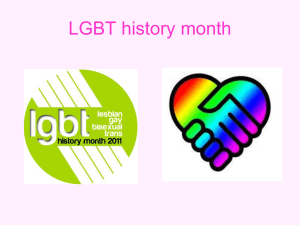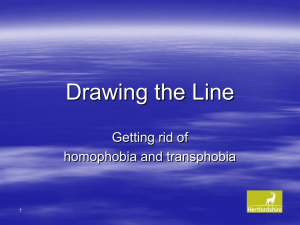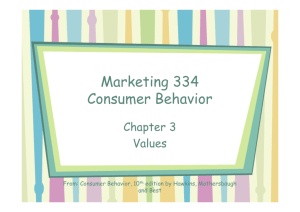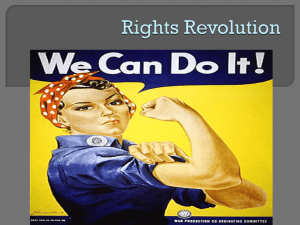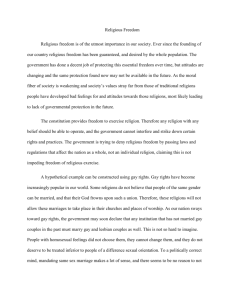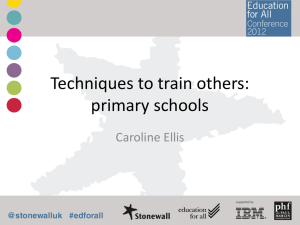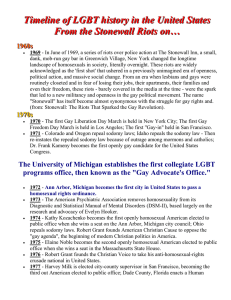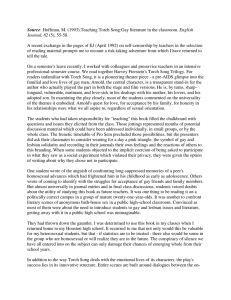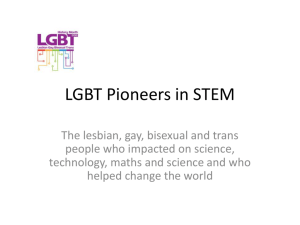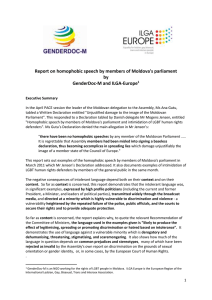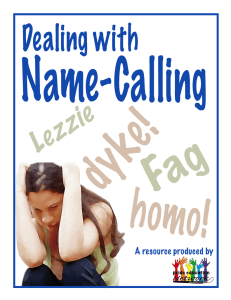Thought of the Week - Priory Community School
advertisement
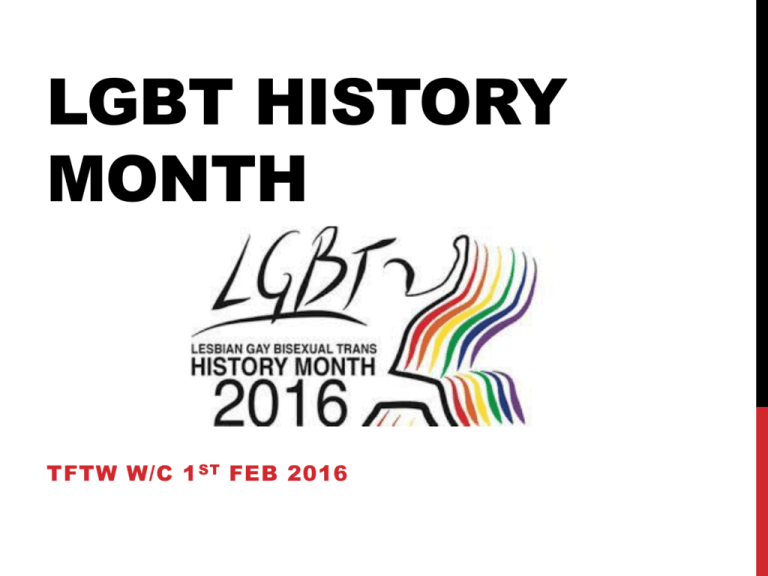
LGBT HISTORY MONTH TFTW W/C 1 ST FEB 2016 THIS TERM WE ARE LOOKING AT BRITISH VALUES A main focus has been the value of tolerance and acceptance. February is LGBT History Month in the UK. LGBT stands for Lesbian, Gay, Bi-sexual and Transgender. Most people are heterosexual, or “straight”. They are attracted to the opposite sex and when they grow up they will probably do the usual thing – set up home with someone of the opposite gender and have babies. However, for a large number of people, sexuality is not that straightforward. Gender and sexuality are usually linked, but not always. So some men are attracted to other men. Some women are attracted to other women. Some people are attracted to both men and women. Some feel that they have been born with the wrong gender altogether – they might have the body of a man, but their feelings and their brain are those of a woman. WHY IS IT IMPORTANT TO LOOK AT LGBT ISSUES? More than half (55 per cent) of lesbian, gay and bi young people experience homophobic bullying in Britain's schools Ninety nine per cent hear the phrases 'that's so gay' or 'you're so gay' in school. More than half (53 per cent) of lesbian, gay and bi young people are never taught anything about lesbian, gay and bi issues at school. DO PEOPLE CHOOSE TO BE GAY? https://www.truetube.co.uk/film/nature-vs-nurture It’s all very complicated, and scientists are still trying to figure out what it all means: what makes one person gay and another person straight? No one has a definitive answer, but all the scientific research is making one thing increasingly clear: sexuality is not a choice. People do not choose to be gay or straight or transgender. Sexuality appears to be decided by a number of factors, many of which go right back to how a baby develops in the womb. WHAT IS HOMOPHOBIA? People who dislike, hate or even fear homosexual people are called “homophobic”. It can be difficult to understand why a person would hate someone just because they are gay. Some people are homophobic because, despite the scientific evidence, they do not agree that people are born homosexual. They would say that homosexuality is a choice. This might be true for a tiny minority of people who decide to experiment, but for the vast majority of gay people around the world, this suggestion is laughable. Why would they choose to live a lifestyle for which they were going to be discriminated against? What must homosexual people living in Iran think when they hear that – in the opinion of some - they have chosen to feel in a way that might lead their execution? Some people are homophobic because their religions teach that homosexuality is wrong. This is a tricky one because even religious people cannot agree. Some would say that homosexuality is definitely wrong. Some would say that being homosexual is not wrong, but having a homosexual relationship is. Some would say that if the relationship is a committed one, then it’s okay. But whatever someone’s personal beliefs, they are just that: personal. You can disagree with people, you can disapprove of what they do, but that never gives you the right to mistreat them. Anyone who says, “God says it’s okay for me to treat you unfairly” hasn’t read their holy book very thoroughly. The simple truth is that most homophobic people are homophobic because their parents are, and they haven’t learned to think for themselves yet. Hopefully, homophobia will eventually become as unacceptable as racism or sexism, but we all need to keep a check on our own prejudices to make sure that we are treated all people as equals. Diversity is the future. It’s exciting because it brings with it new ideas and changes in society, but it’s also frightening for some people because they don’t like change. So we must tread carefully, but continue to push forwards. Gay people have always been part of society and always will be, and that is something to celebrate. FINALLY In your planners, on today’s date, write down 3 things you have discussed during this session.
